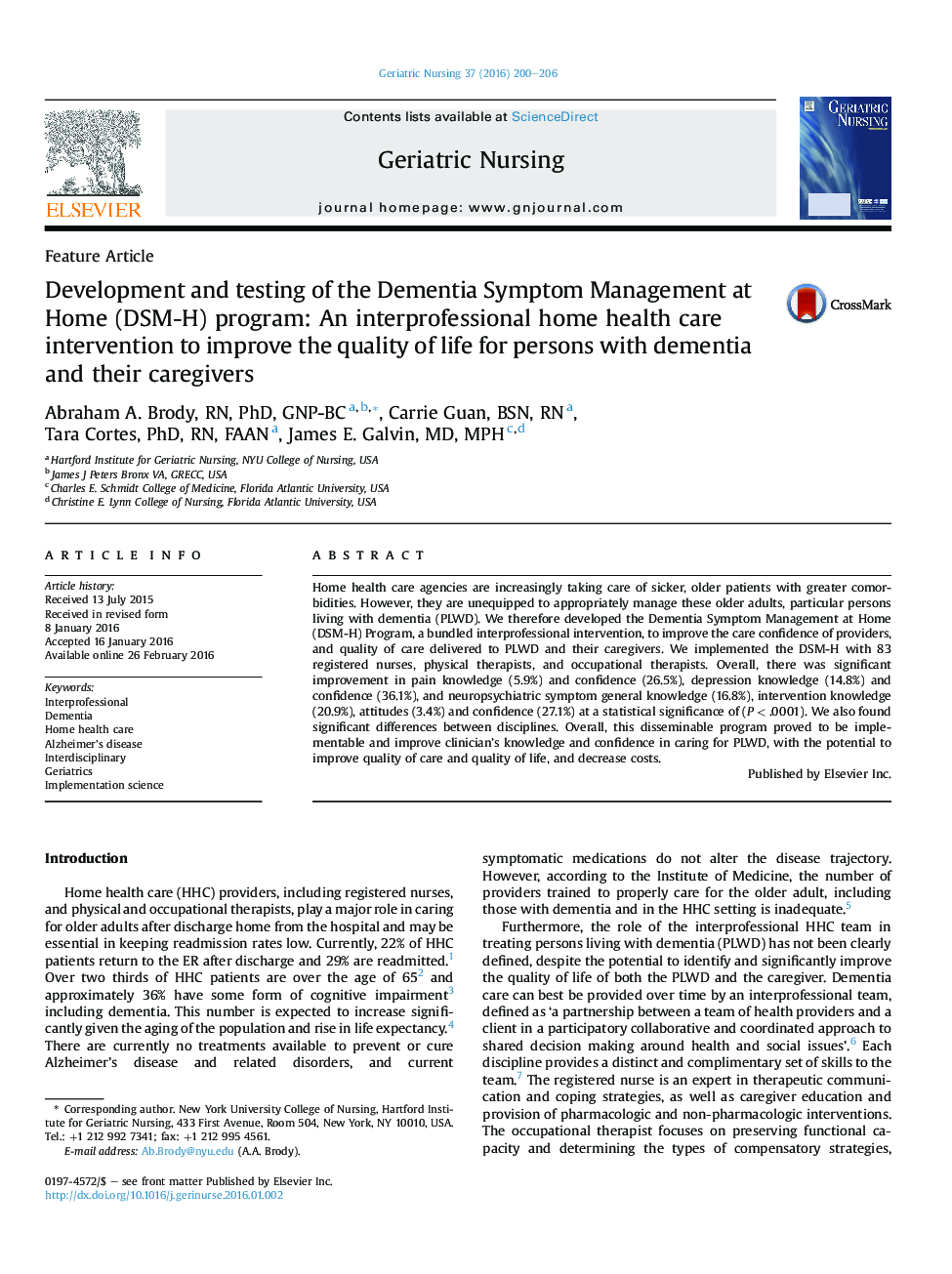| Article ID | Journal | Published Year | Pages | File Type |
|---|---|---|---|---|
| 2650410 | Geriatric Nursing | 2016 | 7 Pages |
Home health care agencies are increasingly taking care of sicker, older patients with greater comorbidities. However, they are unequipped to appropriately manage these older adults, particular persons living with dementia (PLWD). We therefore developed the Dementia Symptom Management at Home (DSM-H) Program, a bundled interprofessional intervention, to improve the care confidence of providers, and quality of care delivered to PLWD and their caregivers. We implemented the DSM-H with 83 registered nurses, physical therapists, and occupational therapists. Overall, there was significant improvement in pain knowledge (5.9%) and confidence (26.5%), depression knowledge (14.8%) and confidence (36.1%), and neuropsychiatric symptom general knowledge (16.8%), intervention knowledge (20.9%), attitudes (3.4%) and confidence (27.1%) at a statistical significance of (P < .0001). We also found significant differences between disciplines. Overall, this disseminable program proved to be implementable and improve clinician's knowledge and confidence in caring for PLWD, with the potential to improve quality of care and quality of life, and decrease costs.
